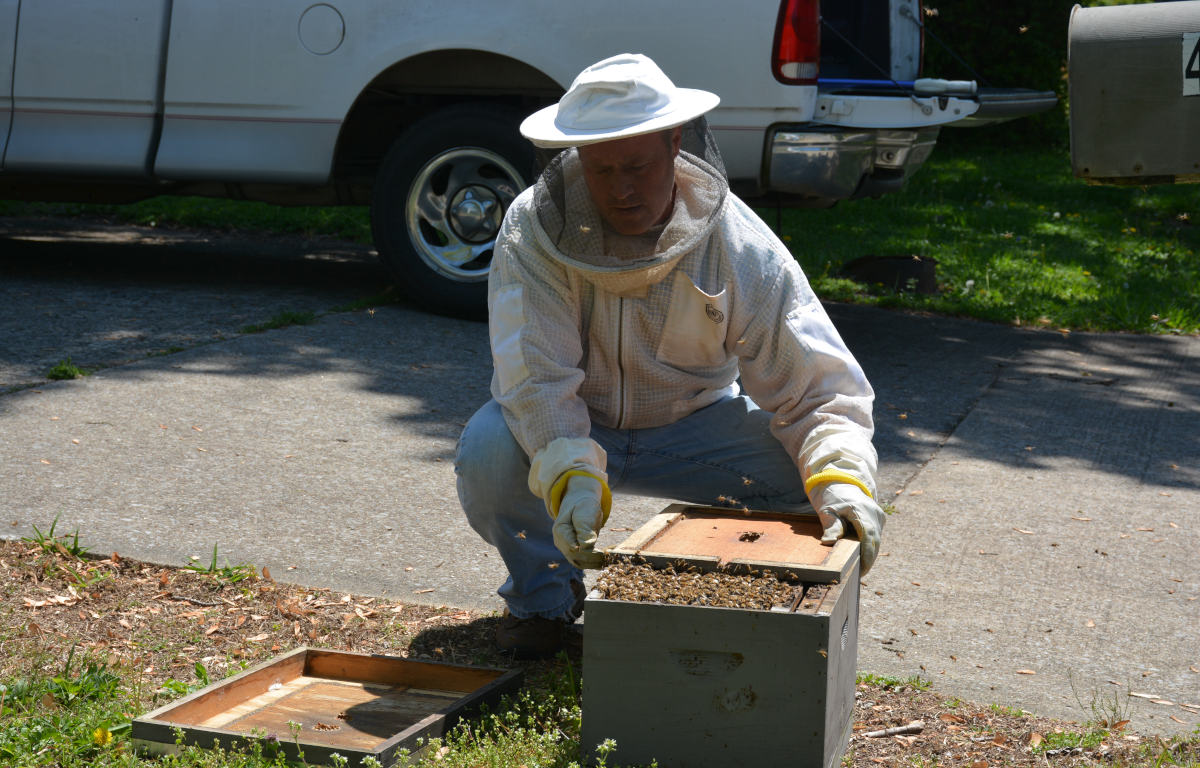CLARKSVILLE, Tenn. (CLARKSVILLENOW) – Now a month into spring, it is swarm season in the U.S, and honeybees are looking for places to build hives. During this time, bees will often gather together in swarms, sometimes in inconvenient places.
While these swarms may seem dangerous, bees are an important part of the environment, and spraying them can cause lasting harm to the local agriculture.
In an effort to help bees and humans alike, local Spanish/ELL teacher and beekeeper Jason Groppel removes bee swarms free of charge. He then re-homes the bees at his own apiary where they can live and produce honey away from people’s homes.
“I was on my break from work and I came out to check them mail and was like ‘what is that?'” said Quanna, a homeowner that reached out to Groppel after finding a swarm on her mailbox. “We were one a Clarksville page on Facebook and found a bee keeper, because we were just going to call pest control.”
Groppel took up beekeeping at a young age from his uncle. He helped to refound the Clarksville-Montgomery County Beekeeping Association, which now has hundreds of members. He has been removing swarms for a few years now, and usually relocates 2-3 per week.
“A swarm can be very intimidating, even scary,” said Groppel. “But, they are really very docile at the time of swarming because they don’t have anything to protect except the queen. They don’t have anything to guard. They’re really just looking for a place to live and I come along. I give them a place to live and I take them out to the country where they won’t be in anybody’s way and people can benefit from them.”
According to Groppel, swarm season begins at the end of March and will often continue through mid-May. A cloud of bees will gather and congregate around a queen, usually on a structure such as a fence or tree. A swarm can reach the size of a beach ball and contain over 10,000 bees in five to ten minutes.
Bees are an integral part of the local ecosystem, and play a major role in pollinating crops for local farmers.
“Tennessee is agriculturally based, and we have a lot of farmers who depend on honeybees for their crops,” said Groppel. “They bring in several hundreds of millions of dollars annually to beekeepers and other agricultural producers who require pollination services.”
For those interested in bee keeping, Groppel says Youtube can be a great source of information, as well as books like “Beekeeping for Dummies’ and ‘The Beekeeper’s Handbook’. Prospective beekeepers can also join the Clarksville-Montgomery County Beekeeping Association on Facebook.
Should you find a swarm on your property, Groppel can be reached via Facebook to help remove the bees safely.























